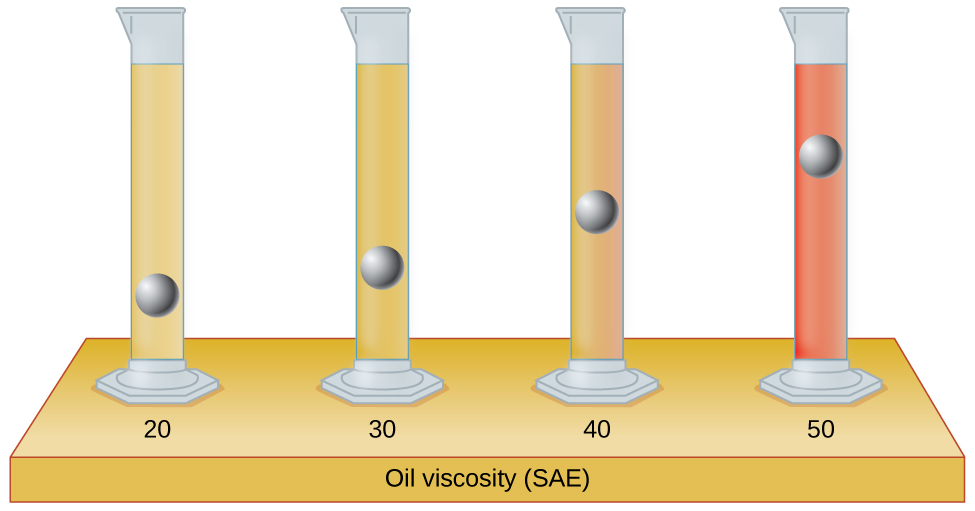-
The Alchemist - Material List
-
A. Fun with Chemical Reactions
-
B. Wingardium Leviosa
-
C. Magic Potions
-
D. Get Messy with Viscosity
Viscosity – Definition
What is Viscosity ?
Viscosity is a measure of a fluid’s resistance to flow. It describes the internal friction of a moving fluid. A fluid with large viscosity resists motion because its molecular makeup gives it a lot of internal friction. A fluid with low viscosity flows easily because its molecular makeup results in very little friction when it is in motion. In more simple words ” More the Viscosity, Less will the fluid flow on a surface”.
The viscosity of a fluid refers to how easily it moves under stress. A highly viscous fluid will move less readily than a fluid of low viscosity. The term fluid refers to liquids and gases both of which have viscosity.
In the picture given below, the Viscosity is the highest for the fluid in the last tube which is why the small steel ball moves with the slowest speed. Whereas, the viscosity in the first tube is the lowest which means it has got less internal friction, hence the steel ball moves with a speed higher than that of the ball in the last tube.

